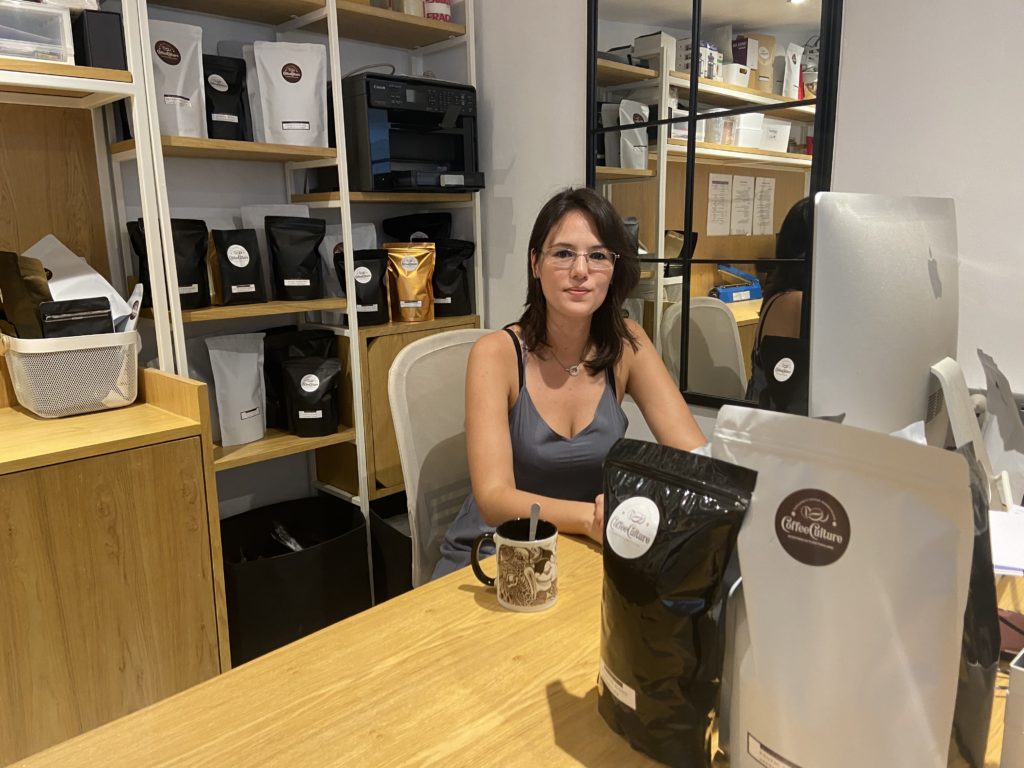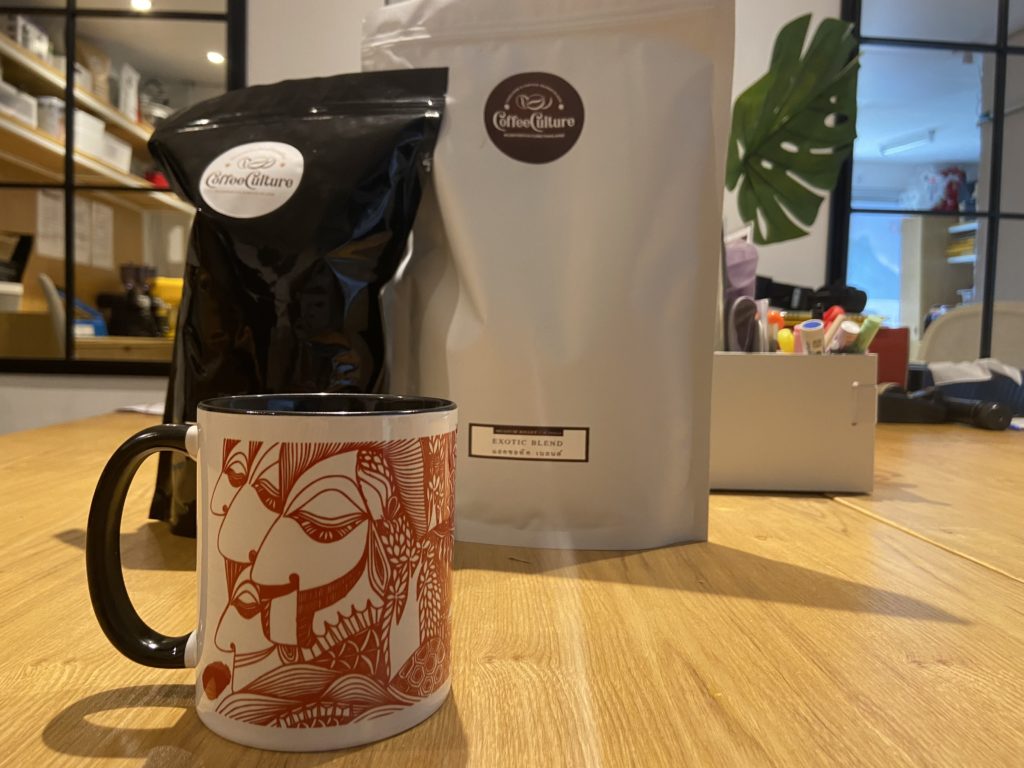
Of the many things Thailand is known for Coffee is probably not the first thing that comes to mind. Nevertheless, half Finnish-half Thai founder of the new “Coffee Culture Thailand” company, Susan Bovornpotsakul, is trying to make some changes to Thai coffee game. By making local coffee roasters available to the mainstream market via her online shop and by utilizing innovative marketing strategies, she is trying to improve the conditions for both the coffee roasters and coffee drinkers of Thailand.
A new flavor
The idea for the coffee shop came in a time after Susan and her husband Daniel’s joint digital marketing company had collapsed due to the Covid crisis’ devastating effects. When businesses across Thailand, and Phuket where the couple live, closed down they stopped needing marketing. The company lost all its clients and revenue and henceforth Susan needed something new to do.
“We wanted to start something of our own and at that same time I started getting kind of annoyed with how I couldn’t find any good coffee,” Susan says.
“I knew it was out there because I’ve been to Chiang Mai where there is a lot of quality coffee roasters. You just cann’t find it in any stores because they don’t know how to market it.”
In this respect Susan’s half Thai background became very helpful. She was able to find her way to the different coffee roaster simply through searching Facebook. This however requires that you are fluent in Thai since the local coffee farmers in most cases doesn’t speak English. Therefore, it can be hard for the many expats that Coffee Culture deals with to find this coffee on their own.
Another big advantage is the many years of experience with digital marketing that Susan has. One of the things that especially has helped the company grow is the many different innovative marketing ideas who has been the backbone from the start Coffee Culture.
“We launched the business by shooting a promotional video for a crowdfunding campaign. The campaign ended up raising 60 thousand Bhat that we could use to make the first big order,” Susan explains.
Other inventive ideas that the company has used to market their business are things such as letting customers pay with crypto currency and working with local artist to create specialized merchandise. All these of ideas has helped the company grow.
In a way the beginning of Coffee Culture has been reverse compared with many other start-up companies. Instead of having a product and then figuring out how to sell it. Susan already knew how to sell and market stuff she just had to find a product.

The coffee drinking culture
For a person like Susan that has observed the Thai coffee drinking culture there are some significant differences between that and the western world’s habits.
“Here in Thailand most of the coffee that people drink is instant coffee. Is has kind of the same bitter and sweet flavor. So, it’s not really a custom here to find a specific coffee you like and use a coffee maker,” Susan says.
This tendency is also seen when you look at the company’s sales statistics. At the moment Coffee Cultures customer base is made up of 40 percent expats and 60 percent Thai natives. But Susan also hopes that by offering a larger variety more Thai people will also change their coffee habits and develop a more acquired coffee taste.
The future
Besides offering more new coffee flavors to the Thai Coffee drinkers Susan also has two futures targets that she wants to achieve with the business.
“I want to open a supermarket for coffee with tubes where you can tap coffee beans from different roasters around Thailand. In the current supermarkets it is only the big coffee brands who makes it,” Susan tells and adds.
“I would also like to have different Coffee Culture replicas around the world. So instead of Thailand it would be Malaysia and Indonesia Coffee Culture. Then we could connect our Thai coffee with those stores and the other way around. So that people could also try local coffee from other countries.”

